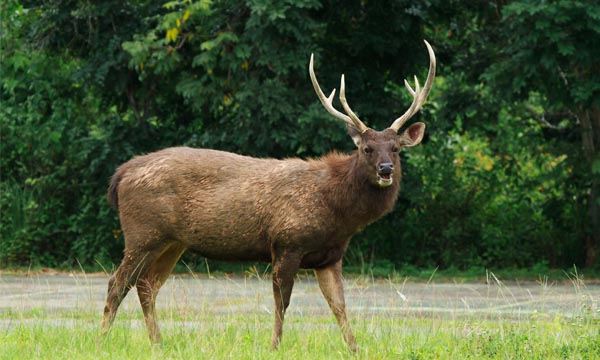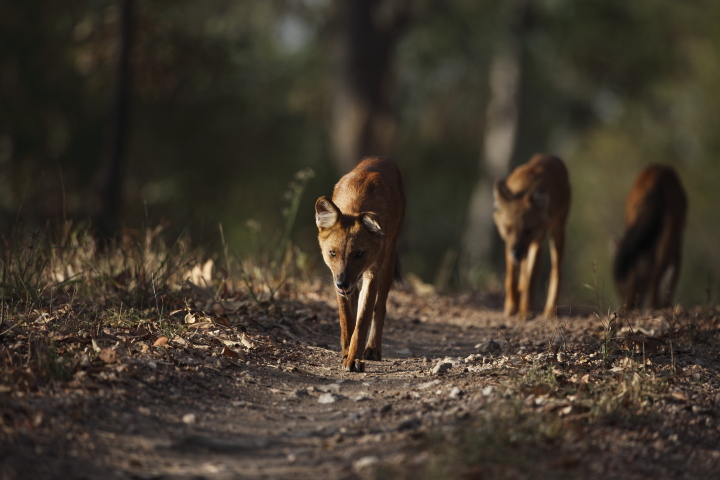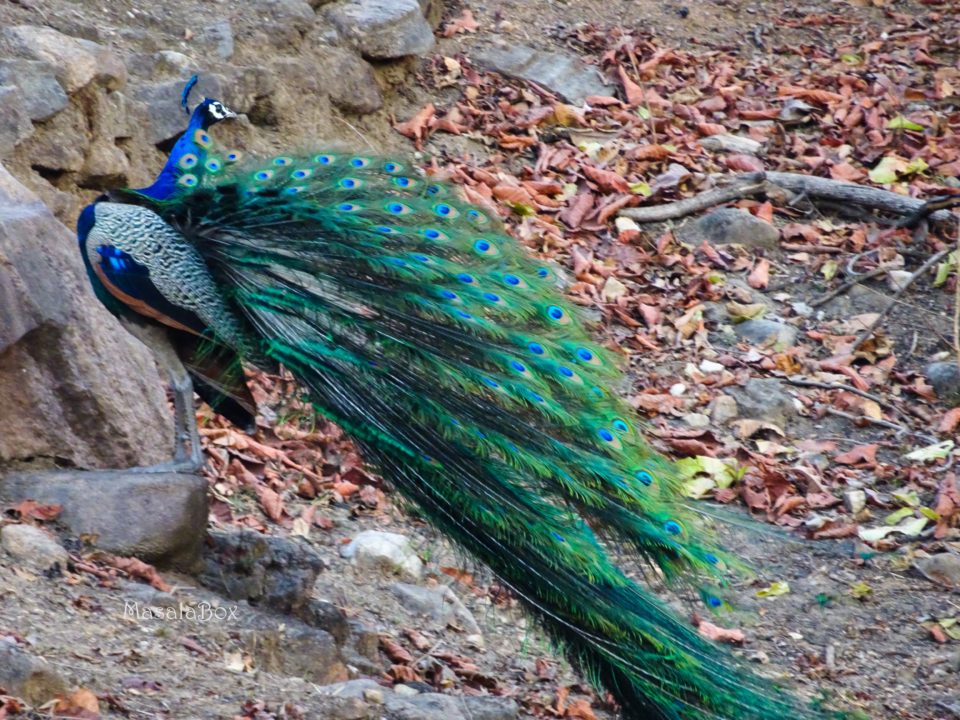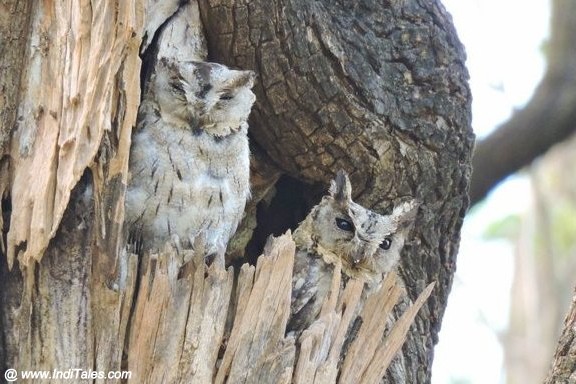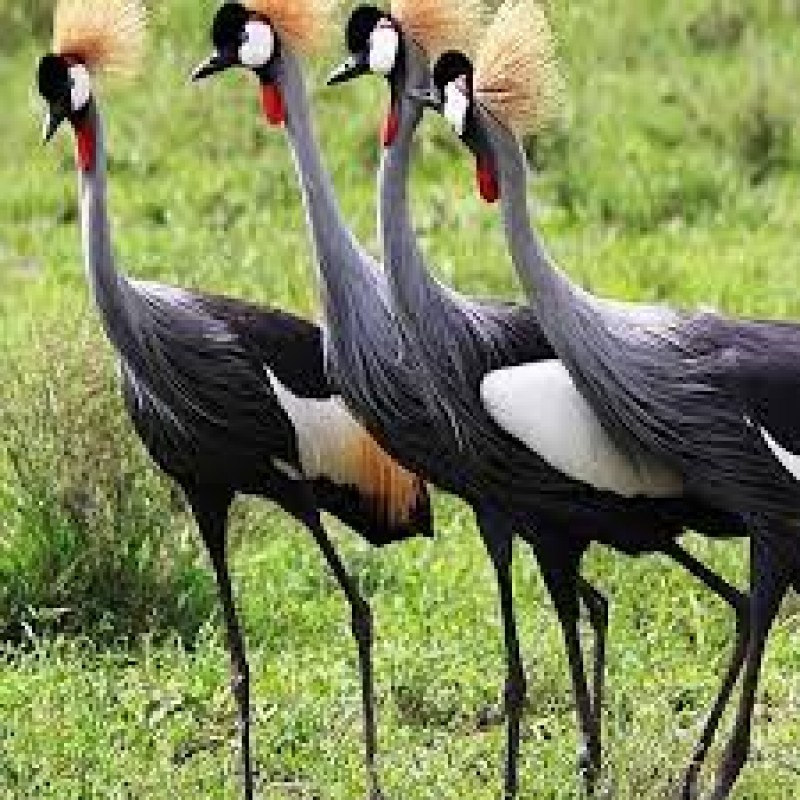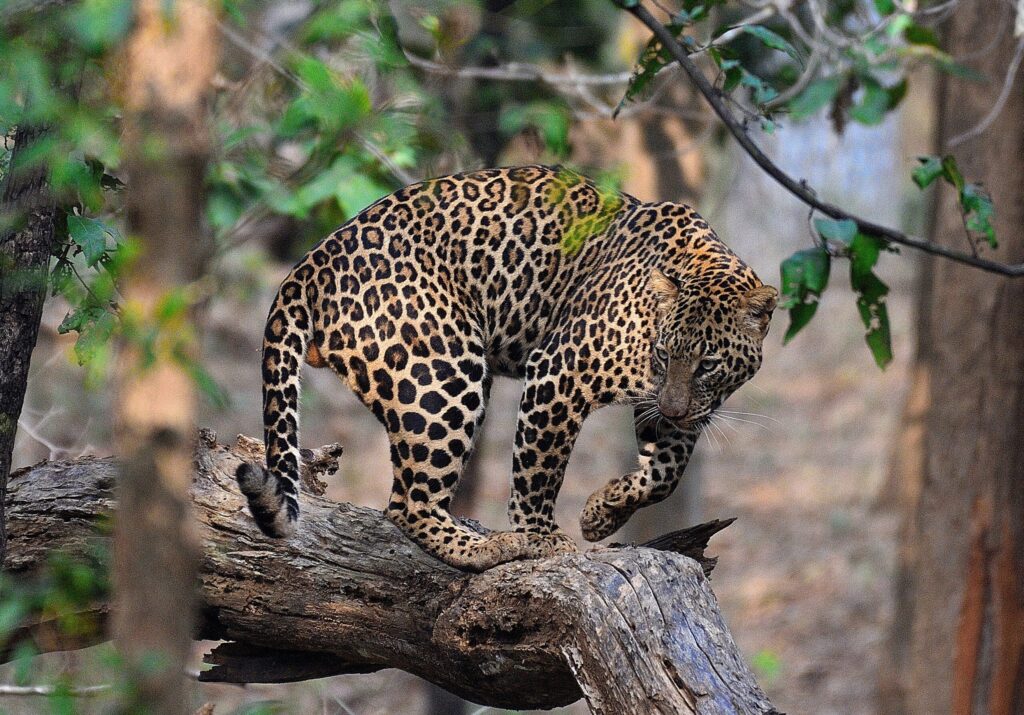Pench National Park
Home of Mowgli
About:
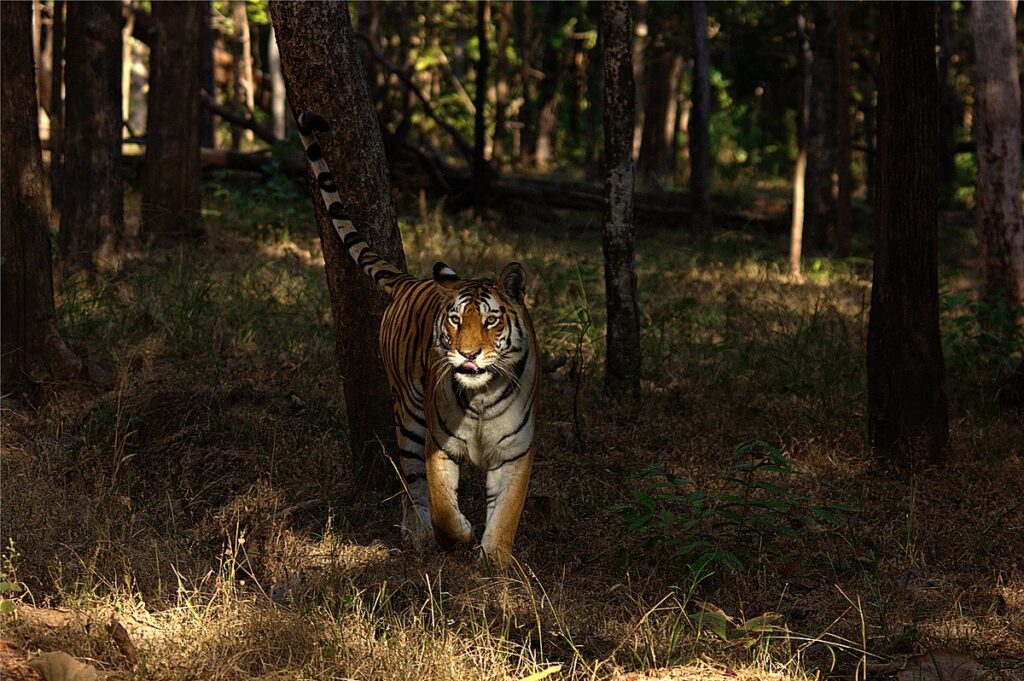
Pench National Park is a national park in India‘s Madhya Pradesh state, established in 1975 with an area of 257.26 km2 (99.33 sq mi). It includes Pench Tiger Reserve and derives its name from the Pench River that flows through the park from north to south dividing the park into almost equal western and eastern halves, the well-forested areas of Seoni and Chhindwara districts respectively. It was declared a sanctuary in 1965, raised to the status of national park in 1975 and enlisted as a tiger reserve in 1992. In 1983 it was declared as National Park. The national park consists of dry deciduous forests and much fauna and flora including tigers, various types of deer and birds. In 2011, the park won the “Best Management Award”.
Safari Zones:
There are three core zone – Turia, Jhamtara, Karmajhari whereas the Buffer Zone of the park includes Rukhad, Telia, Khumbhpani, Silari, Khursapar, Chorbahuli.
NOTE: Pench opens from 01”st October to 30”th June every year. This park does not open in monsoon season i.e. July, August & September.
Animals And Birds :
The park is home to around 65 Bengal tigers, 39 species of mammal, 13 species of reptile, 3 species of amphibian. Also Indian leopard, sloth bear, indian wolf, wild dog, porcupine, monkeys, jungle cat, fox, striped hyena, gaur, four-horned antelope and barking deer live in the park.
The park is rich in bird life too. According to an estimate of the wildlife authorities, the park harbours more than 210 species including several migratory ones. Some of them are peafowl, junglefowl, crow pheasant, crimson-breasted barbet, red-vented bulbul, racket-tailed drongo, Indian roller, magpie robin, lesser whistling teal, pintail, shoveller, egret and herons, minivet, oriole, wagtail, munia, myna, waterfowl and common kingfisher.
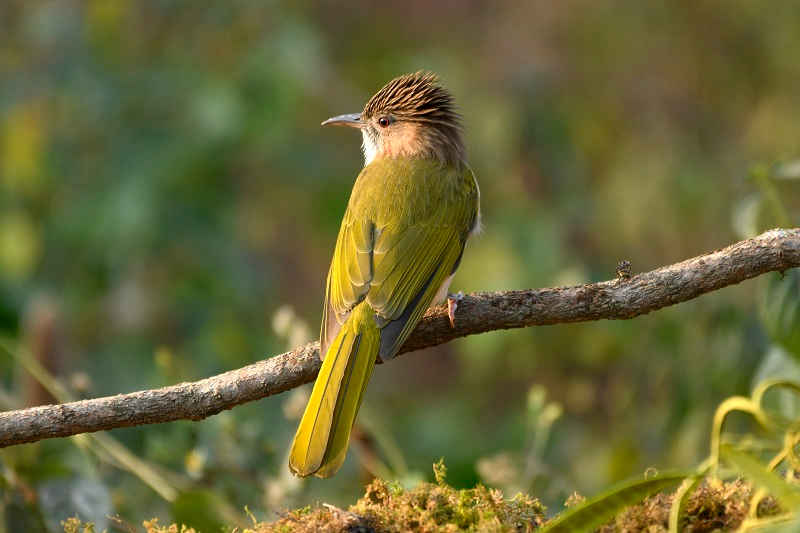
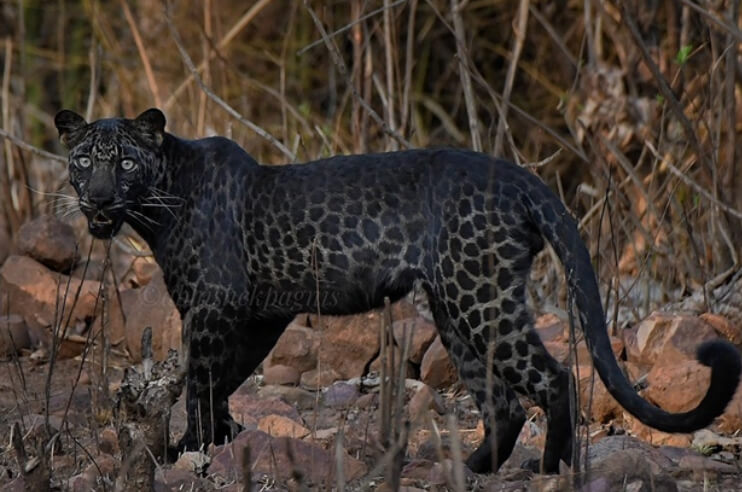
Pench forest reserve, is one of the places that may have inspired Rudyard Kipling‘s The Jungle Book.
The Pench National Park provided the location used by the BBC for the innovative wildlife series Tiger: Spy in the Jungle, a three-part documentary narrated by Sir David Attenborough which used concealed cameras, placed by elephants, in order to capture intimate tiger behavior and also retrieved footage of various other fauna in the reserve. The programme aired for the first time in March 2008 and ended a month later.
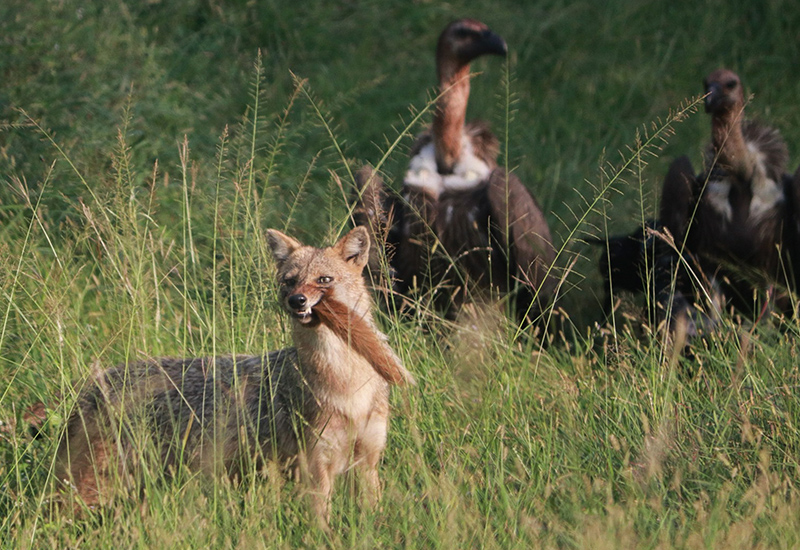
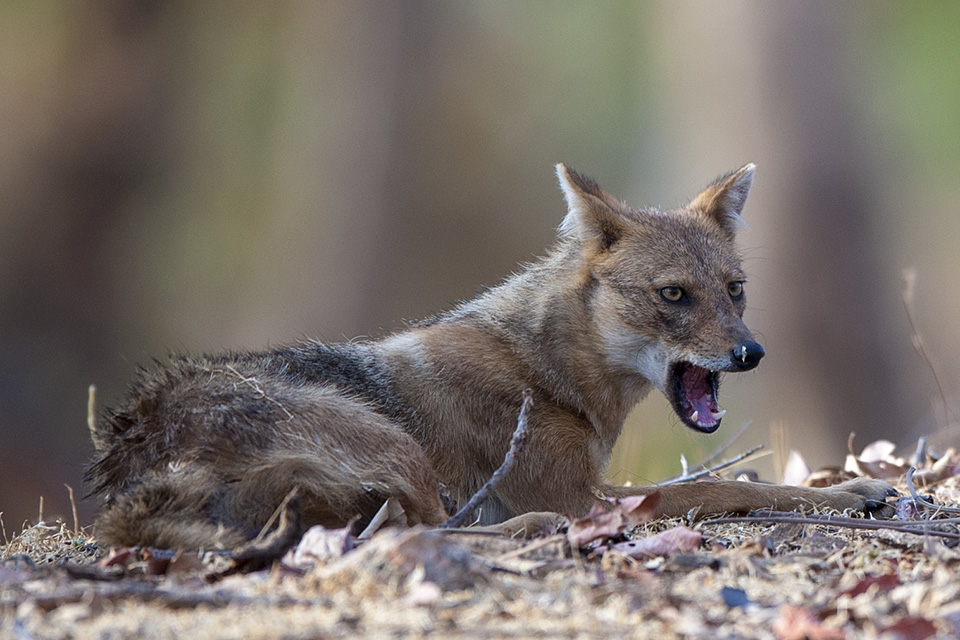
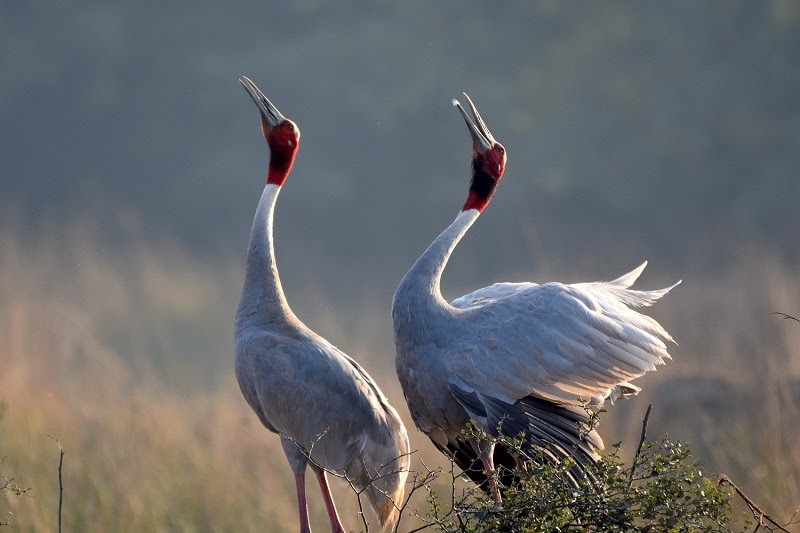
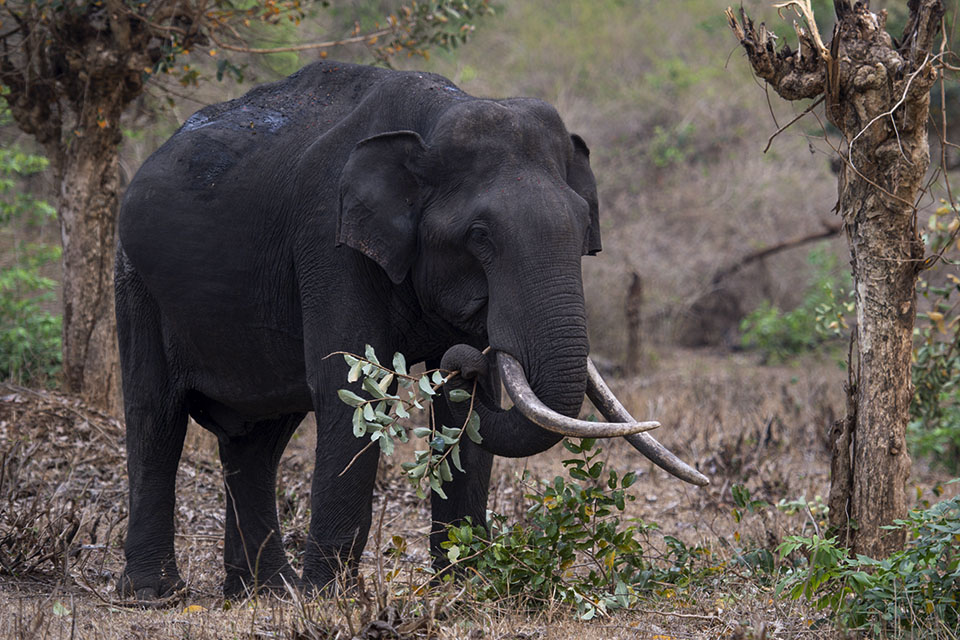
Transportation:
The Seoni Railway Station is approximately 30 kms from the Pench National Park. It is the nearest Railway Station to Pench and it has regular frequency of trains running in and out, connecting the place to Mumbai and other major cities. Alternatively Nagpur is the best junction to reach from where you can get road transfers to Pench. The main touria gate can be reached from Nagpur 85 kms (02:30hrs), from Jabalpur is 215 kms (04 hrs), from kanha is 200 kms (03;30 hrs).
The second gate jamtara is 80 kms from Chindwara. One has to reach this places form Nagpur & other places.
The third gate karmajhiri which is 135kms (03:30 hrs) from Nagpur, 195 kms (04:30 hrs) from Jabalpur.
For taxi services book us
Safari Prices :
| Entry Gate | Safari Shift | Safari Duration | Safari Charges |
| Turia Zone | Morning Safari | 4 hours | INR 9000 |
| Karmajhiri Zone | Evening Safari | 4 hours | INR 9000 |
| Wolf Sanctuary | Night Safari | 3 hours | INR 9000 |
Timing :
From 16th June – 30th September, every year, Pench National Park and Reserve in Madhya Pradesh remains closed for the visitors. In addition, this park usually remains closed for the visitors’ entry for evening safaris on Holi and Diwali and all Wednesdays.
Though Pench National Park in Maharashtra remains open throughout a year without any closure for visitors.
| Period | Morning | Afternoon |
|---|---|---|
| 1st July – 30th November | 06.30am – 11:00am | 02.30pm – 06.00pm |
| 1st November – 28th / 29thFebruary | 06.30am – 10.00am | 02.00pm – 06.00pm |
| 1st March – 30th April | 05.30am – 09.30am | 03.00pm – 07.00pm |
| 1st May – 30thJune | 05.30am – 09.30am | 03.00pm – 07.00pm |
Booking of Jungle Safari in Pench National Park
- The online tickets for safari rides can be booked 120 days before the scheduled date of visiting the national park.
- Tourists are required to mention the original ID details and it is mandatory to carry that ID with you while travelling. Tourists can give the details of original ID cards like driving licence, voter ID card, passport, and Aadhar card.
- In case of any discrepancy in information, the booking will be considered invalid.
- Foreign tourists can also book tickets through an online portal and have to carry the same Id proof during their safari ride.
- The cost of a single Jeep safari is INR 9000 and one jeep will accompany six people. For foreigners in the vehicle, an extra charge of Rs 1000 is charged for every vehicle only for Khusapur and Sillari gates.
- The tickets comprise entire details including the timings, about the safaris, about the gate numbers, and about the do’s and don’ts.
- During jungle safari in Pench national park, tourists are required to follow rules and regulations issued by the Maharashtra and Madhya Pradesh government.
- Tourists have to pay 100% of the booking amount of the jungle safari in advance.
- It is advisable to book safari rides in advance as the safari vehicles are limited.
- Tourists must choose the safari ride for both the states to enjoy the thrilling experience of this national park at their fullest.
- The rates of the jungle safari vary for different types of rides and safari zones. Tourists can book two safaris as well and different types of safaris.
interesting facts :
1. Most leopards are light coloured and have dark spots on their fur. These spots are called “rosettes” because their shape is similar to that of a rose. There are also black leopards, too, whose spots are hard to see because their fur is so dark.
2.Deers’ eyes are on the side of the head. This gives deer a wide vision angle of 310 and degrees making it almost impossible to focus on a focal point. They, however, have impressive night vision, which is essential during their feeding time and escape from predators
3.2. Deer have great hearing senses. Deer can move their ears and make them face different directions without moving their head because of the muscles it possesses. It also picks up sound frequencies higher than humans.
